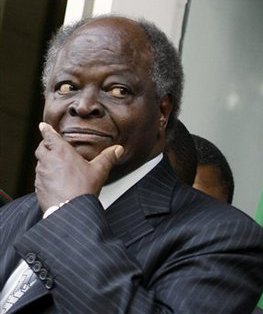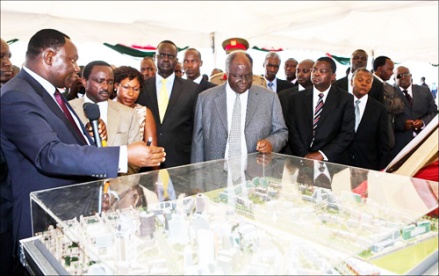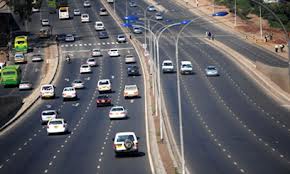So on May 3, World Press Freedom Day, Freedom House got us to wake up and smell the coffee about the state of media freedom.
![The more elections Africa, the more it gets divides over issues like media freedom]()
The more elections Africa, the more it gets divides over issues like media freedom
It released a report revealing that press freedom has fallen to its lowest level in over a decade globally, and only one in six people live in countries with a free press (http://www.freedomhouse.org/report/freedom-press/freedom-press-2013). This lousy media freedom picture, it said, “was punctuated by dramatic decline in Mali, deterioration in Greece, and a further tightening of controls in Latin America”.
That said, the outlook was not bad for Africa. In large measure because the Arab spring toppled dictatorships in Egypt and Tunisia two years ago, Africa is no longer the predictable hellhole for independent journalism it used to be, although journalists are still murdered in record numbers in Somalia, and places like Eritrea remain a penal colony even for pro-government media workers.
“The trend of overall decline occurred, paradoxically, in a context of increasingly diverse news sources and ever-expanding means of political communication”, Freedom House noted.
And why are media freedoms declining? According to Freedom House: “The growth of these new media has triggered a repressive backlash by authoritarian regimes that have carefully controlled television and other mass media and are now alert to the dangers of unfettered political commentary online”.
Contrary to what it might read like at first glance, Freedom House’s analysis of why things are bad for free media is actually rosy. My sense is that if one looked at the various deeper political and social reasons why media freedoms have declined, the picture is actually very gloomy. This is especially so in developing nations.
I think that there are FOUR far-reaching reasons why media freedoms will deteriorate in places like Africa for many more years before they get better – if at all. One, ironically, is because of the advance of electoral democracy. Secondly, because well-meaning anti-poverty campaigners have been too successful. Thirdly, because of the globalisation of information that is associated with the growth of the Internet. Fourthly, the ghosts from the 1994 Rwanda genocide – in which party-controlled radio played a key in rallying the murderers – still roam.
In an ideal world, all three factors would have led to more media freedom. So why have they had the opposite effect?
The “Curse” Of Elections
These days in Africa, in a year we have more (relatively) competitive elections, than we would have in a period of 10 years in the decade between 1975-1985!
The one-party and military dictatorship phase of African politics, meant that a cross section of elites and civil society were on one side, united by the common experience of oppression. They demanded a free press together with multiparty politics, and free elections as some of the goods that comprised the democratisation basket.
Fast-forward to 2012: Today, we have dozens of political parties, presidential term limits, and both free and rigged elections, “independent” media, websites, blogs, name it.
Political mobilisation, however, has dramatically changed. To win elections, political groups have to woe the support of sections of the elite, the non-elite, the independent media, and civil society. To keep power, they co-opt these groups by rewarding them with access, opportunities, and state largesse. This mobilisation is mostly done along ethnic, religious, regional, or party lines.
Whatever the case, today a government will have a considerable section of the elite, of the media and civil society supporting it. These groups will provide fairly intelligent arguments for the government’s actions, including restricting media freedom. They also give a “respectable face” to governments. The result is that the 1970s-90s consensus about media freedom has fractured.
Because of the way our new democracies mobilise support, and allocate benefits, for every voice and civil society group criticising the government and pushing for more freedom and openness, there is one supporting government abuses and arguing for secrecy and a push back against media freedom. The “democracy game” is no longer lopsided in favour of the democrats—most time it is a draw, and the bad guys are winning it on penalties.
The Anti-Poverty Brigade Was Too Successful For Our Good
For 30 years, from about 1970 to 2000 the biggest policy debates in Africa were not even over democracy, but poverty. Was it “poverty reduction”, “poverty alleviation” or “poverty elimination”? Were the IMF/World Bank policies the right ones? Did markets have a role? Could African states fight poverty? Were NGOs the best vehicles to combat poverty? Should donor support go directly to support anti-poverty projects, or be paid into the central budget? Was debt ruining countries’ possibility to fight poverty? Should debt be forgiven or rescheduled? How much was corruption hampering the fight against poverty? Would the next G7 or G20 Summit do something for Africa’s poor? Where would Bob Geldof’s or Bono’s next anti-poverty gig be? Which Hollywood actress star would be speaking on Africa’s poverty next? What would she be wearing?
![A child scavenges for food in a garbage pit near Malanje, Angola. Many good-hearted people in Africa today believe that things like fighting poverty are far more important than media freedom - UMNS Photo.]()
A child scavenges for food in a garbage pit near Malanje, Angola. Many good-hearted people in Africa today believe that things like fighting poverty are far more important than media freedom – UMNS Photo.
However, a new constituency also grew from it that considered things like press freedom a “middle class issue”, and the more left-leaning NGOs and intellectuals saw it is a “bourgeois luxury”. That was erroneous, but the pro-freedom folks could only fall back to continuously quoting Nobel laureate Amartya Sen’s arguments that democracy is the best way to avoid famines partly because of its ability to use a free press.
Nevertheless, the idea that bread on the tables of the poor, and putting rural children through school was more important than “the right of the press to make money through sensationalism” (as the critics of free media like to put it) had become fairly well established.
Globalisation …And The Desire For Good Things
The Internet, satellite TV, and mobile phones, have opened up the world to everyone. Yet, that means different things to an average Kenyan or Ugandan, than it does to an average American. I think for Africans, there is less acceptance of the poverty in which most of them live, and more and more of them now also want a little bit of the good life people in other parts of the world enjoy.
![China is rich...and doesn't have much of a free press. Many Africans increasingly think there is merit to that approach.]()
China is rich…and doesn’t have much of a free press. Many Africans increasingly think there is merit to that approach.
That ultimately is a question of HOW they can get it. Every year hundreds of thousands choose to get it by migrating to live and work in North America, Europe, and these days Asia. But for the millions who can’t do that, they want it here.
In the past the question of HOW we could also grow rich was a debate dominated by a few intellectuals and columnists. It was always about three paths. One, the western freemarket/capitalist path (with its multiparty elections). Second, was the authoritarian-first-then-democracy-later path of South Korea, Taiwan, Malaysia, and Singapore. Then, third, the African way led by a heavy-handed but magnificent patriarch – e.g. Houphuet Boigny in Ivory Coast (Cote d’Ivorie); Muammar Gaddafi in Libya, Zine El Abidine Ben Ali in Tunisia, and such characters.
The African way was never quite convincing, because it never really reduced poverty. But articulate and radical pan-Africanists kept it alive until it crumbled when Ivory Coast went to seed; Gaddafi was beset by a rebellion and eventually lynched; and Ben Ali was run out of power and into exile by “social media” revolutionaries.
But even as it fell out of favour, it was replaced by China’s one-party-Communist-state-capitalist model that was creating fabulous wealth, and transforming the red dragon into the world’s second super power after the USA. And, even better, it looks set to overtake America in less than 10 years.
We had seen the “best examples” of free press, the US and European ones, corrupted in their coverage of the war in Iraq and Afghanistan. Today, as Europe is battered by the ill winds of its recession, all other aspects of its politics, including its pluralistic media model, are suffering in prestige.
Amidst it all, most middle class Africans want the prosperity of China, Malaysia and Singapore. More and more of them are actually sending their children to study at universities in these countries, rather than the US and Europe. They have “seen with their own eyes” that they can have it without a free press.
Demons From The Land Of One Thousand Hills
![The remains of the victims of the 1994 Rwanda genocide in which state-controlled radio mobilised for murder: We are paying the price today, and continue in the same folly.]()
The remains of the victims of the 1994 Rwanda genocide in which state-controlled radio mobilised for murder: We are paying the price today, and continue in the same folly.
I have not heard or read of a single African minister of Information or Security boss who has not justified a measure to restrict media freedom in his or her country over the last 15 years who has not relied on the bad example of Rwanda’s Radio Télévision Libre des Mille Collines – French for “One Thousand Hills Free Radio and Television” (RTLM).
Radio Milles Collines, as it is more popularly known, was actually a private radio, but was controlled by the family of then president Juvenal Habyarimana and extremist elements in his National Republican Movement for Democracy and Development (MRND).
It, and the state-owned Radio Rwanda, whipped up the anti-Tutsi passions that resulted in the genocide of 1994 in which nearly one million people were killed.
The documentary Shake Hands With The Devil, a companion product of a book of the same title by Canadian Lieutenant-General Roméo Antonius Dallaire, who headed the hapless UN peacekeeping mission in Rwanda during the genocide, has some chilling moments when we hear the audio from Radio Milles Collines rallying the extremists to hunt down Tutsis. It informs them of the bushes and hamlets where they are hiding, and urges them to go and finish them off.
I think that 19 years later, African journalists and media freedom campaigners have
![Many elections in Africa today are a collective trip to very dark places on the Internet: We emerge with a stench that puts many off from the case for a free media.]()
Many elections in Africa today are a collective trip to very dark places on the Internet: We emerge with a stench that puts many off from the case for a free media.
not fully come to terms with the damage Radio Milles Collines has done to the cause of press freedom on the continent. What makes it worse, as we saw in Kenya during the early-2008 post-election violence, as well as the recent March election, is that nearly every election in Africa today ends with social media and the Internet diving in the dark and murky depths of hate speech. Many countries just just relive Rwanda 1994 every five years.
To compound matters, the partisanship of many mainstream newspapers, FM radio and TV stations just gets worse. So every other one of the many elections on the continent today ends with societies more divided over the value of media freedom, and with fewer and fewer non-partisan supporters for a free press.
We could argue that Radio Milles Collines was so deadly because there were no anti-Radio Milles Collines operating to counter it. That for the voices, however few they are, that talk peace, fairness, and preach against hate to be able to blog freely, the Internet also needs to be free for those who preach hate. The problem is that increasingly we are speaking to an empty-hall. Most people have left, driven out by despair, cynicism, anger, or left to go into trenches to fight their own new parochial and partisan causes. Press freedom, has very few buyers these days. And I fear that market is not about to rebound.
•twitter:cobbo3
Filed under:
Heroes & Villains,
Political Barometre Tagged:
Africa,
Arab Spring,
bob geldof,
Bono,
China loving,
democracy in Africa,
divided Africa,
end of freedom,
Eritrea,
Freedom House,
hate speech,
Kenya post-election violence,
Malaysia,
poverty,
press freedom,
Radio Milles Collines,
Rwanda genocide,
Singapore,
South Korea,
Tunisia ![]()
![]()
![]()
![]()
![]()
![]()
![]()
![]()



















































































